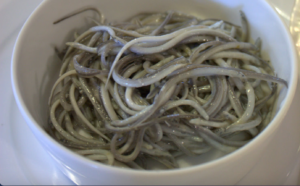When you think of pasta, you think of Italy. When you think of Italy, you think of pasta. But did you know that once upon a time the Italian government waged a war on pasta? Unsurprisingly, the Italian people weren’t having it.
This is the story of when Italy’s Fascists and the Futurists went to war on pasta.
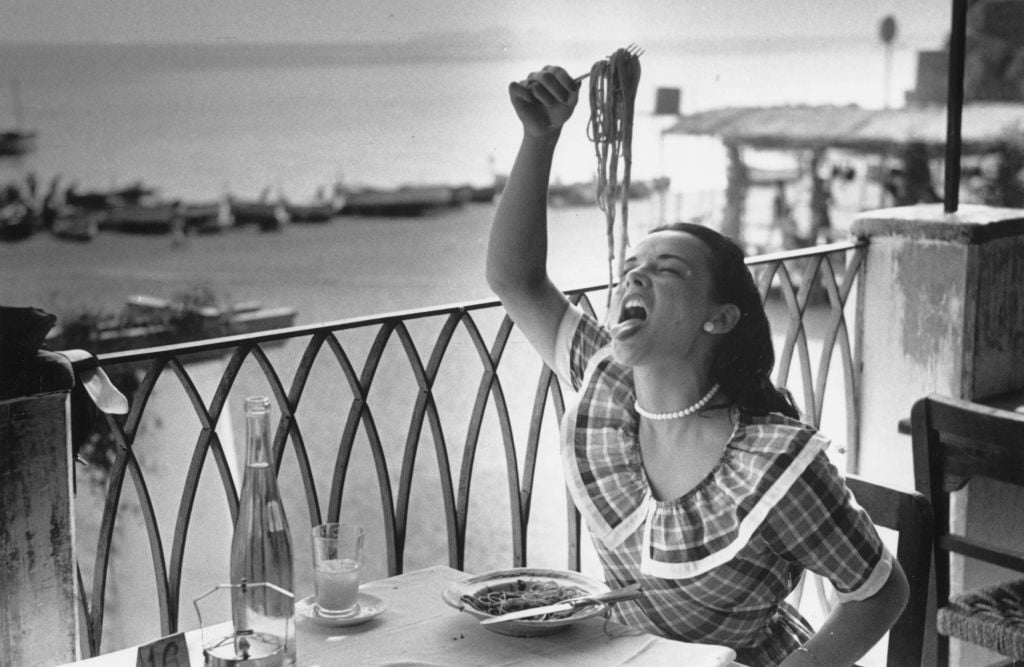
Remarkable as it may seem, Mussolini’s Fascist government in the 1930s outlawed pasta in Italy. There were a few reasons behind the initiative. Some were economic, such as the desire to sell more of the rice produced in Northern Italy. Some were patriotic, like Mussolini’s fierce brand of nationalism deeming Italy’s vast wheat imports needed to keep up with pasta consumption unpatriotic. And some were just strange, like saying pasta made for lazy soldiers and weighed the Italian youth.
Yet there was also a deeper, philosophical motivation for banning pasta. For that, we need to look at the Futurism movement. Born in Italy in the early 20th century, futurism was, quite simply, an artistic and social belief in energy and the future. It sought to capture the speed, dynamism and technological advancements of the time, and inject this energy into art and society.
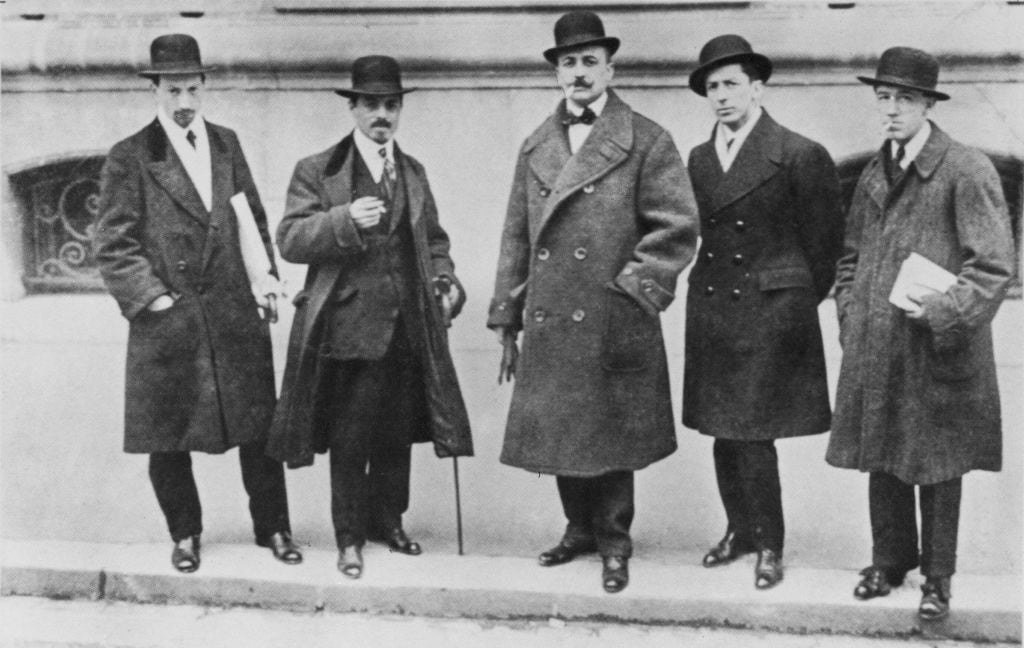
At the forefront of the movement was a man called Filippo Tommaso Marinetti. Marinetti was a poet and thinker, who wrote the 1909 Futurist Manifesto, and ten years later co-authored the more ominous Fascist Manifesto. But in the interest of this story, Marinetti also wrote a manifesto against pasta. It included the paragraph below.
“Any pastascuittist who honestly examines his conscience at the moment he ingurgitates his biquotidian pyramid of pasta will find within the gloomy satisfaction of stopping up a black hole. This voracious hole is an incurable sadness of his. He may delude himself, but nothing can fill it. Only a Futurist meal can lift his spirits. And pasta is anti-virile because a heavy, bloated stomach does not encourage physical enthusiasm for a woman, nor favor the possibility of possessing her at any time.”
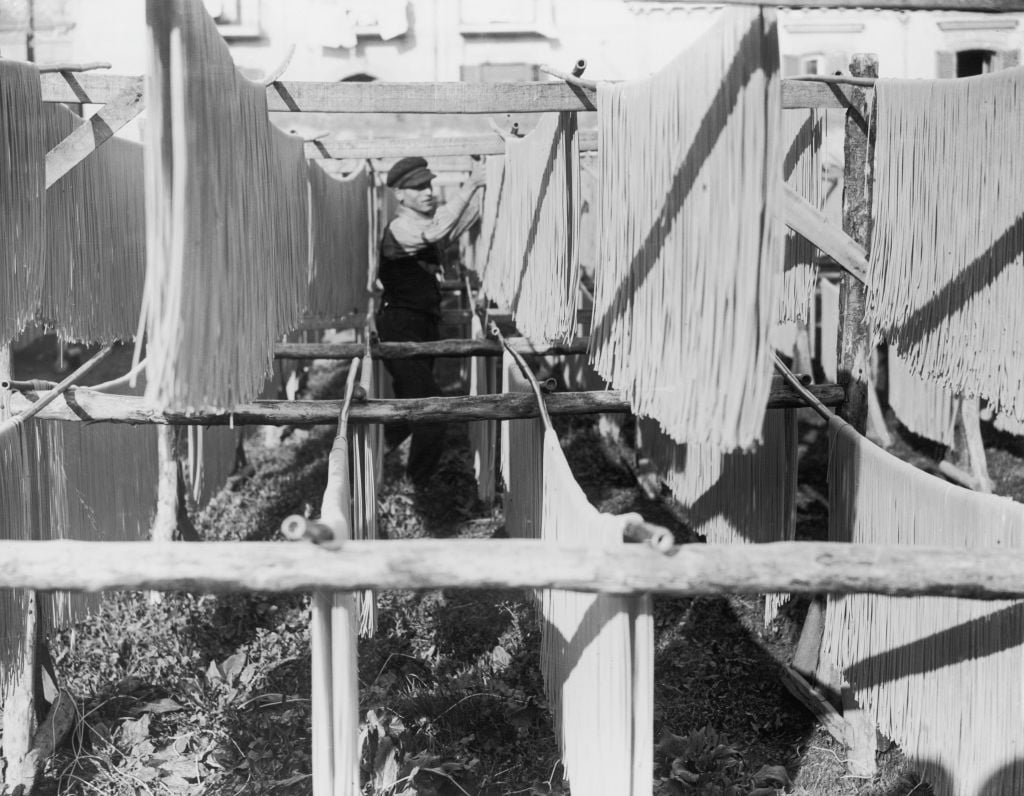
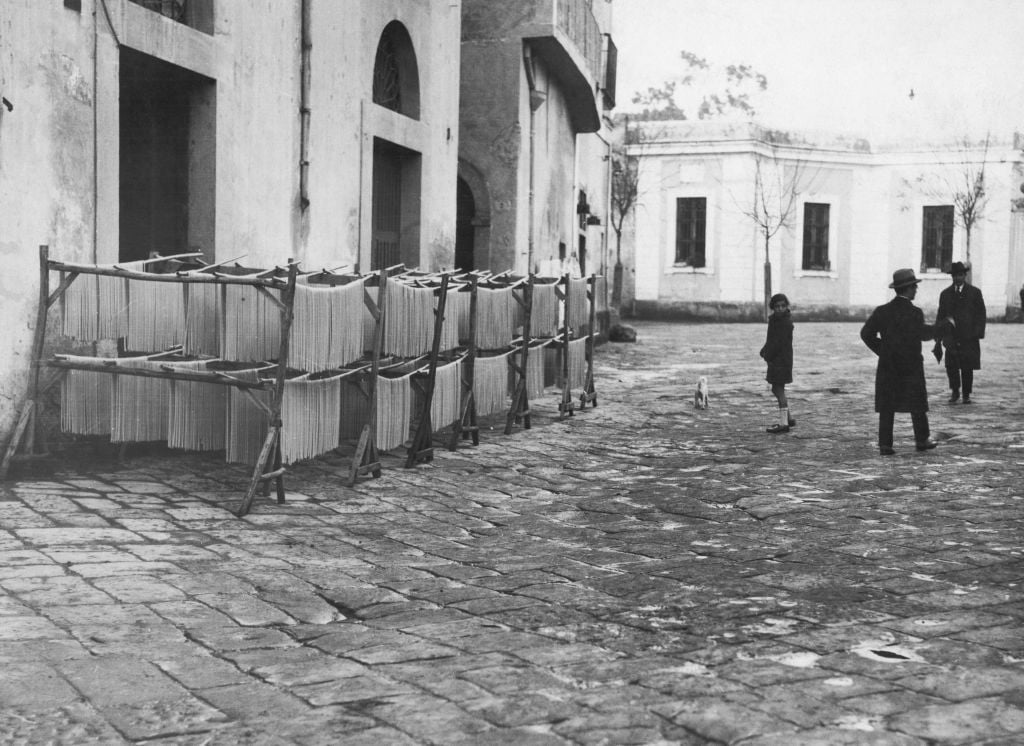
Evidently, Marinetti was very passionate in his beliefs. He was not alone. Futurist journalist Marco Ramperti wrote: “It is the swelling of the belly at the expense of the brain… Try starting a debate after bingeing on tagliatelle.” They found support from the French poet, Gabriel Audisio, who (perhaps best of all) claimed: “[Pasta] is a dictatorship of the stomach” and condemned its “insidious, slow process of rumination […] the unctuous conciliatory rhythm of the sloth”.
As passionate as these anti-Pastists were, there were millions of pro-pasta Italians with equally fervent beliefs. This view was particularly strong in the south of the country, and in Naples – famed for its pasta production.
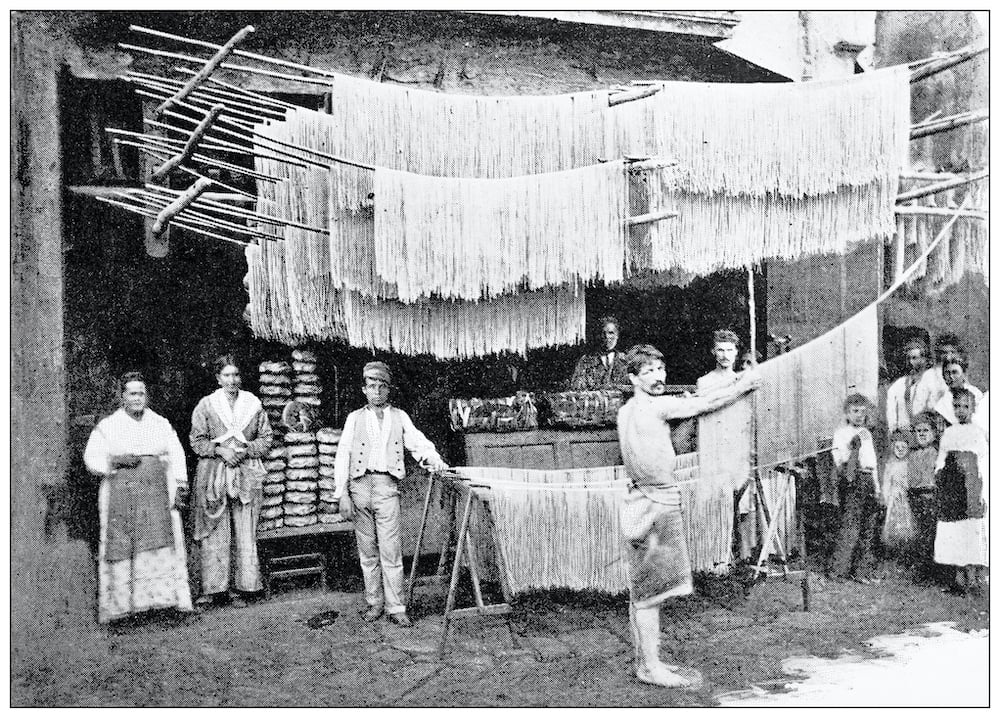
Women from the city of Aquila came together to sign a letter of protest defending the honor of pasta. The Duke of Bovino, mayor of Naples, replied to Marinetti’s pasta manifesto by claiming: “The angels in Heaven eat nothing but vermicelli al pomodoro.” Marinetti, already not a fan of the Church, said Bovino’s riposte only “consecrates the unappetizing monotony of paradise and the life of the angels.”
Read More: Thomas Downing | Abolitionist, restauranteur and New York’s Black “Oyster King”
Ultimately, the heart-inspired pasta lovers defeated the head-driven Futurists and Fascists. Mussolini’s sweeping ban never really materialized. Italians, even when ordered otherwise, kept eating pasta.
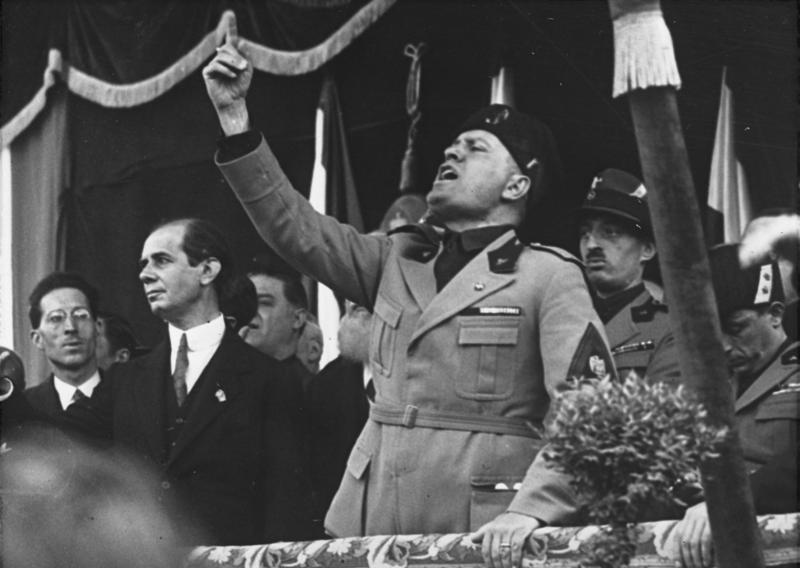
Whether the move was a flash in the pan with no real consequences or a genuine political misstep, remains unclear. Some argue that the ‘Pasta Decree’ led to a deeper divide between the North and South and hindered Italy during the Second World War.
Both Marinetti and Mussolini died during the 1940s and Fascism fell in Italy. In the decades after the war, the popularity of pasta both domestically and abroad only increased, and the Italian love for the food endured.



